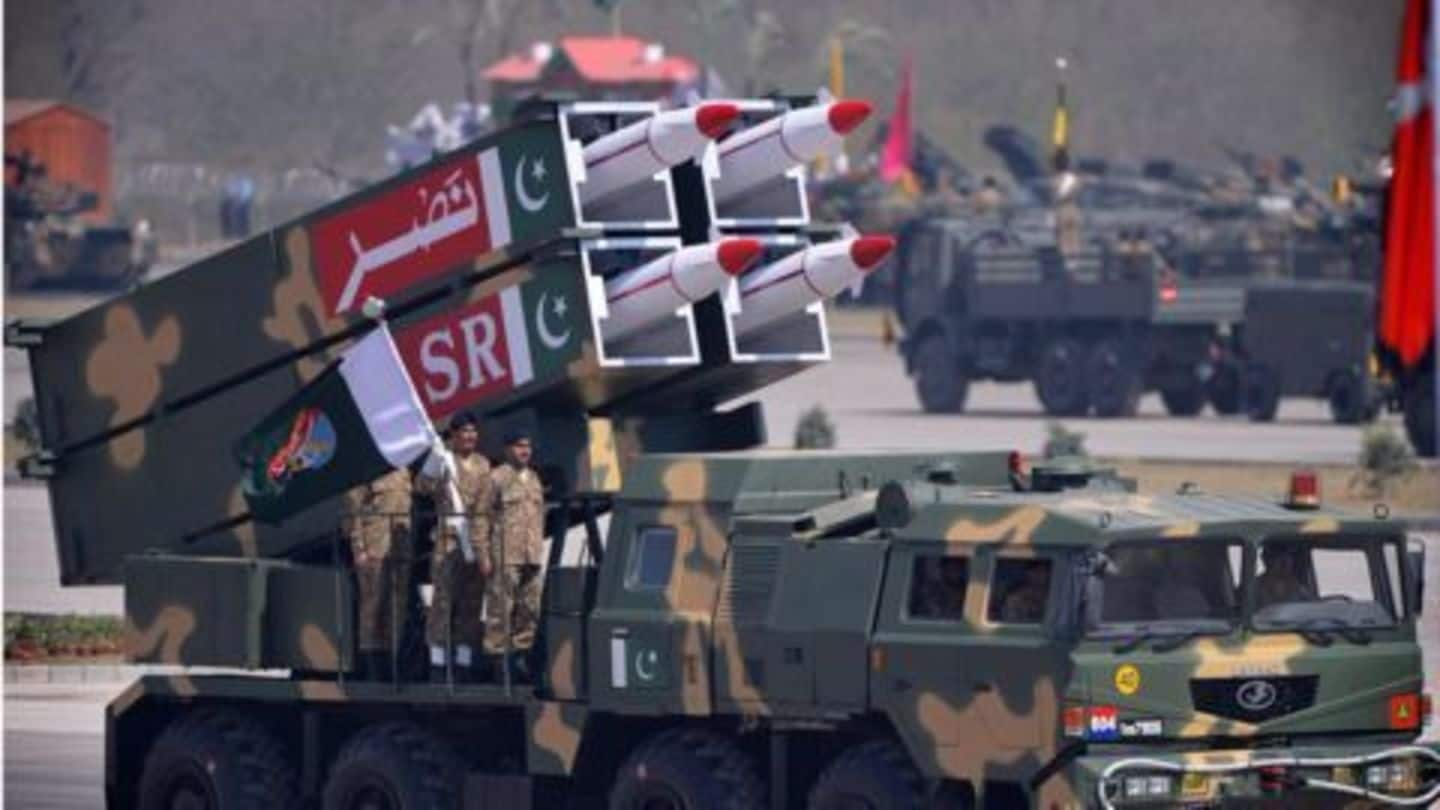
Pakistan can't expect to be welcomed into NSG: report
What's the story
A report by Project Alpha of King's College of London's Centre for Science and Security Studies stated Pakistan cannot expect to be welcomed into Nuclear Suppliers Group (NSG). It underlined Pakistan's continuous use of "front companies" and "deceptive" procedures to acquire dual-use goods for nuclear programmes. It added China "is either complicit in supplying Pakistan's programmes, or negligent in its control over state-owned enterprises".
Information
About Project Alpha
Project Alpha is an academic project sponsored by the British Government that works to counter illicit nuclear proliferation-related trade. It was established with the British Government's funding in 2011. Ian Stewart, seconded to King's College of London from Britain's Defence Ministry, currently heads the project.
Information
Deceptive techniques
The report stated: "Pakistan cannot expect to be welcomed into the NSG when it continues to secretly and systematically undermine NSG members' national export control systems by targeting companies through the use of front companies and other deceptive techniques."
Strategy
Deliberate strategy of using deceptive methods
The report "Pakistan's Strategic Nuclear and Missile Industries" concluded Pakistan has a "deliberate strategy of using deceptive methods to obtain dual-use goods." It added the strategy was demonstrated by Pakistan's use of front companies to supply its strategic industries. Pakistan maintains and uses a network of about 20 businesses in China, Hong Kong, Singapore and Dubai to secretly "funnel dual-use goods" to its programmes.
Quote
Pakistan's overseas operations
The report said: "While the full extent of their overseas operations are not clear, these trading companies (allegedly maintained by Pakistan) probably purchase goods from manufacturers in China, Europe, the United States and elsewhere and then arrange their export to Pakistan."
Sensitive Information
China, the most important supplier to Pakistan's programmes
Pakistan recently applied for entry into the NSG after India's bid for membership; however, Pak's close ally blocked India's application. The report analyzed "fragmented and uncollated" information, including trade data, contractor websites, academic papers, corporate newsletters etc. The report contains very sensitive material; Project Alpha only made the report's redacted version public. Reportedly, China is the largest supplier to Pakistan's nuclear and missile programmes.
China's commitment
Questions about China's commitment
The report said Pak's reliance on China for sensitive technologies raises questions about China's commitment to the "principles of the export control regimes." It added Pakistan wants to expand its civil nuclear programme with "external" assistance to become a nuclear exporter but doesn't accept international rules of responsible non-proliferation behavior. Pakistan rejected Fissile Material Cut-Off Treaty, Nuclear Non-Proliferation Treaty, and Comprehensive Test Ban Treaty.
Overseas procurement
Pakistan's forty-year history of covert procurement
The report stated Pakistan's large overseas procurement of dual-use goods suggested its "strategic industries aren't self-sufficient" as it claimed. Pakistan named some organizations involved in its programmes but didn't refer to the network of front companies used for procurement. The report said Pakistan "continues its forty-year history of covert procurement" to defeat national export controls in other countries and "build strategic capabilities at home."